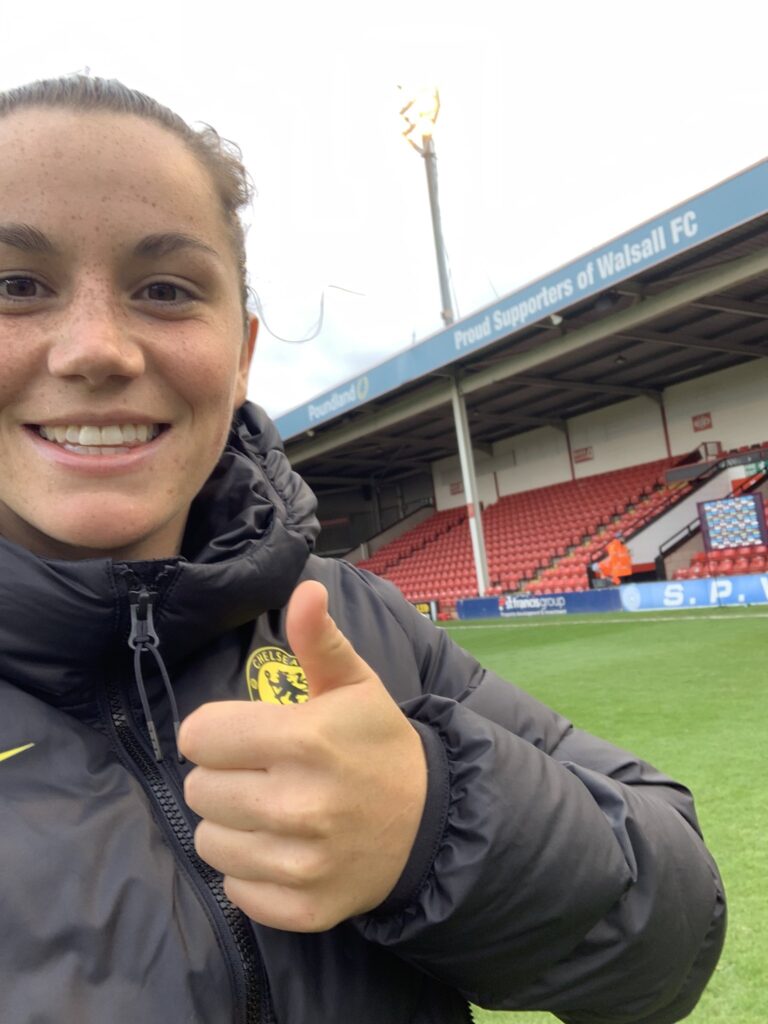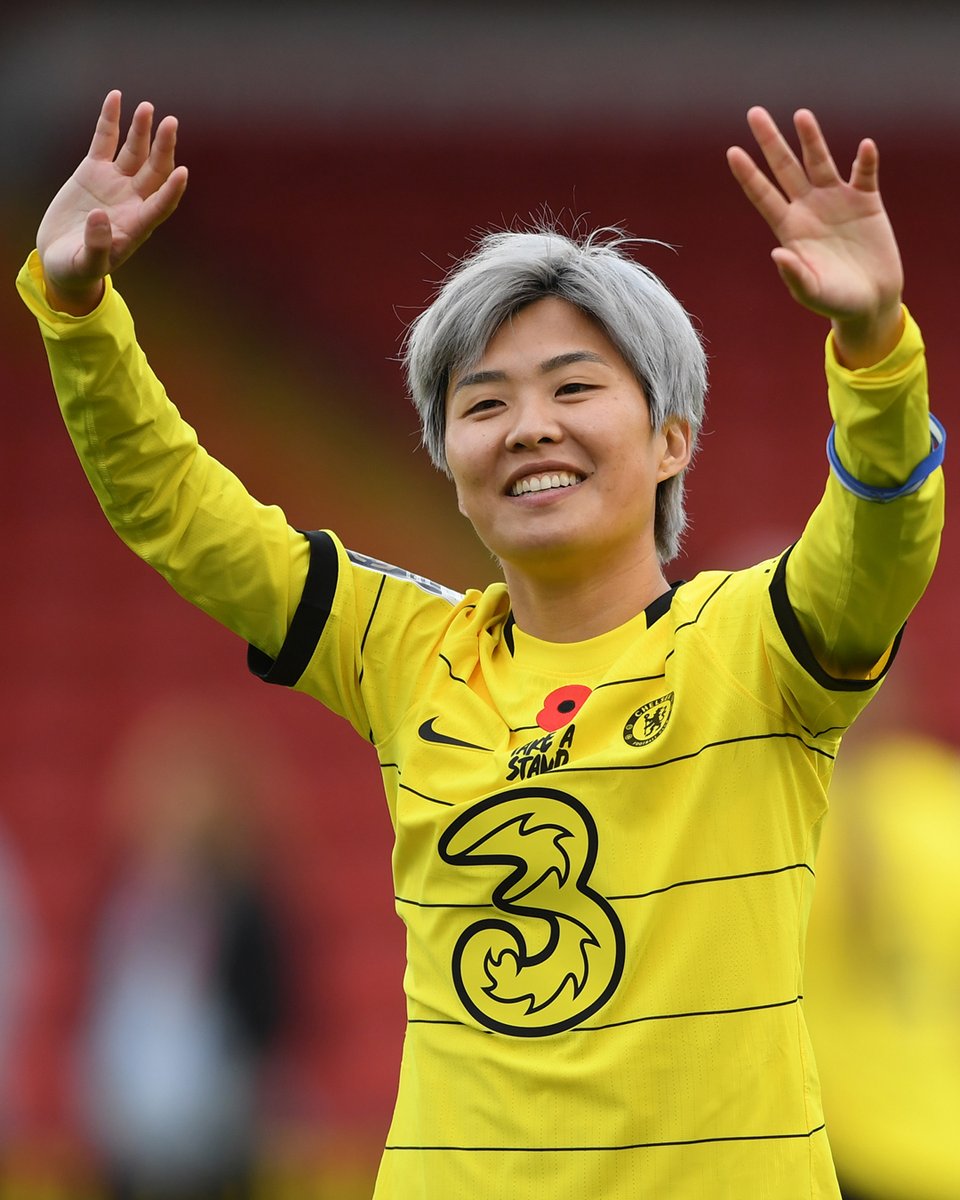
Away fan culture has been a big part of the English football scene for decades as tens of thousands of supporters take to the nation’s motorways every weekend during the season. However, in the women’s game there are really only two FA WSL sides – Chelsea and Manchester United – who have what could be described as a “travelling army” of fans, with other clubs usually having no more than a handful of spectators at games played away from home.
Being an away fan in the FA WSL is not easy. Clubs on the whole do not arrange coaches for their fans and it is left to supporters to organise their own travel plans.
Chelsea Women’s Supporters Group (CWSG) provide this service, negotiating block booking of tickets with host clubs so Blues fans can sit together. They also hire coaches (at the cost of around $1500 AUD) and are reimbursed once fellow fans book seats.
The journey up to Walsall for this weekend’s game ran at a small loss, meaning the fans who paid to hire a coach were left out of pocket. These supporters also organise the production and sale of merchandise specific to Chelsea Women FC as the parent club are not involved and show little interest in this area.

The reality of an away game in England is one that starts early – particularly with kick-offs taking place at times that are far from fan-friendly. Chelsea’s trip to Aston Villa, who play at the home ground of fourth tier men’s club Walsall FC, is just over 230 km. For a 12:30pm kick-off, this involved a 6am alarm call and a journey to Kingsmeadow fuelled by strong coffee on a very cold late autumn Saturday morning.
An even spread of women and men gathered at Chelsea Women’s stadium, resulting in a travelling support of almost 200 embarking on the two-and-a-half-hour journey to the West Midlands. The group passed the time with a paper aeroplane flying competition on the coach, arriving forty-five minutes before the turnstiles opened.
Banks’s Stadium is located right next door to the M6 motorway with no other attractions nearby. Small refreshment kiosks and limited food on sale meant that anyone who chose to endure the long queues was not rewarded with anything similar to the better fayre available in the FA WSL.
Only one stand in the 11,300 seater stadium was open, allowing for a potential capacity of around 2,000. It was immediately apparent that Chelsea supporters made up over a quarter of the attendance. It was also clear that Chelsea fans contributed the only singing, cheering and chanting throughout the match, effectively turning this encounter into a “home game” for the defending champions.
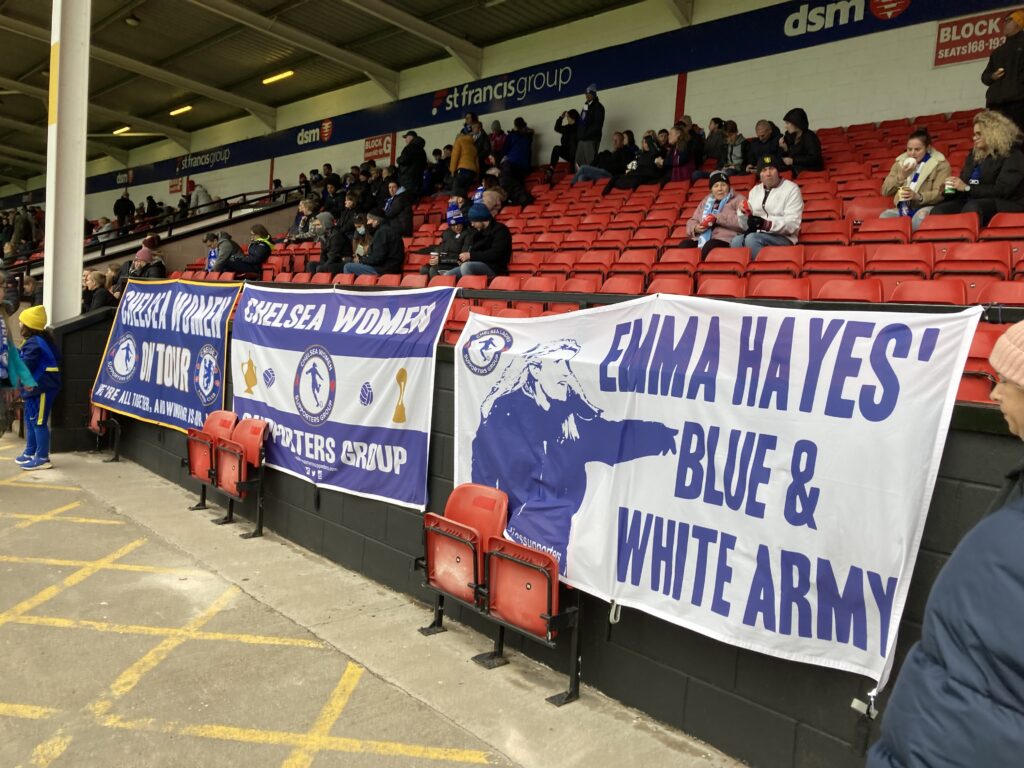
Every player in Chelsea’s team has their own “song” which the gathered supporters gave full voice to throughout the 90 minutes. Unlike English men’s football, none of the songs contain swearing or goading at opposition fans.
The Chelsea players clearly appreciate the incredible support they get home and away – taking time to come over before the game to wave and shout “thanks so much for coming!”
As for the match itself, on paper this should have been a straightforward win for Emma Hayes’ side. With an eye on Tuesday’s trip to Geneva for an away Champions League game against Servette, there were a number of changes to the squad: Aniek Nouwen, Jessie Fleming, Beth England and Jonna Andersson all moved into the starting lineup. Fran Kirby and Sam Kerr were on the bench, while Pernille Harder was still resting an injury picked up during international duty with Denmark.
Chelsea were in control from the start. By the end of the game the Blues had racked up 75% possession and five shots on target to zero, but they found it challenging to get their passing and pressing game going, as the combination of lineup changes and strong wind made life difficult.
Villa, still missing Emily Gielnik due to injury, posed very little threat going forward apart from Alisha Lehmann’s occasional sorties. However, what the Midlands side did have was a very well-organised defence. Their backline was marshalled by Meaghan Sargeant and Maz Pacheco, with hugely talented young goalkeeper Hannah Hampton behind them, and they stood up to the South-West Londoners’ threat throughout the match.
The Blues didn’t create too many out-and-out chances, but three came in close succession between the 20 and 30 minute mark of the first half, and it was one of those opportunities that ultimately proved to be the difference.
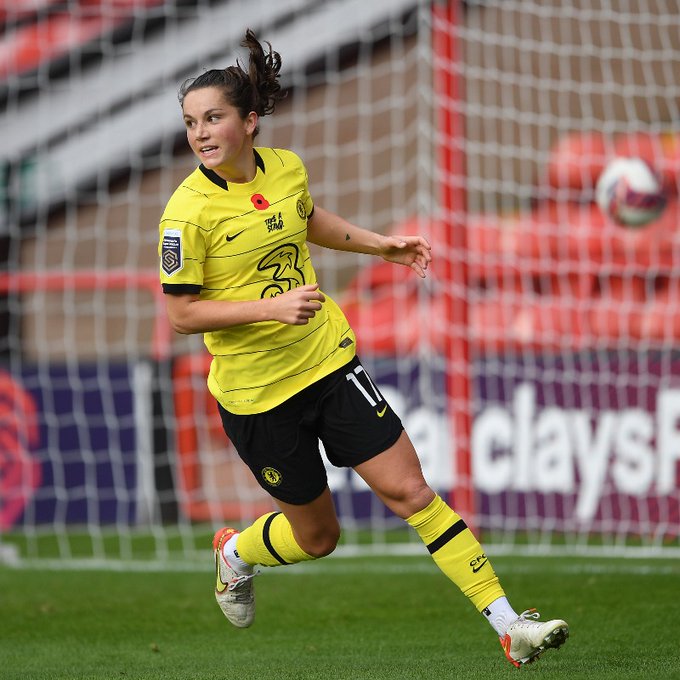
Ji So-Yun used her magic wand to weave through the midfield and play in Olympic gold medallist Fleming, who hit a powerful shot into the net after 22 minutes. Shortly afterwards, the South Korean star almost doubled Chelsea’s lead when she let fly from the edge of the box, but the ball hit the crossbar with Hampton beaten. Erin Cuthbert, dogged and determined as ever on the left flank, also crashed in a shot which Hampton tipped onto the bar.
Fleming was also in outstanding form defensively, never letting anything go and making some determined tackles to stop Villa attacks in their embryonic stages.
The second half saw little in the way of clear-cut scoring opportunites as Chelsea struggled to play a telling final ball. England and Cuthbert did force Hampton into making two great saves, but that was as good as it would get for the travelling support – even the arrival of Kerr and Kirby with 20 minutes left didn’t create any telling moments. The Aston Villa defence worked hard to force the Matildas star out wide for most of her time on the pitch.
The final five minutes saw the Chelsea support dial up the volume in response to Villa’s best spell of the match, when the hosts forced five corners but failed to seriously trouble Ann-Katrin Berger in the visiting goal.
The final whistle was greeted with a loud cheer from the travelling support and they moved pitchside to acclaim their team. The vast majority of the Chelsea players spent over half an hour with their supporters straight after the final whistle, chatting to them as if they were old friends and agreeing to all requests for photos and autographs.
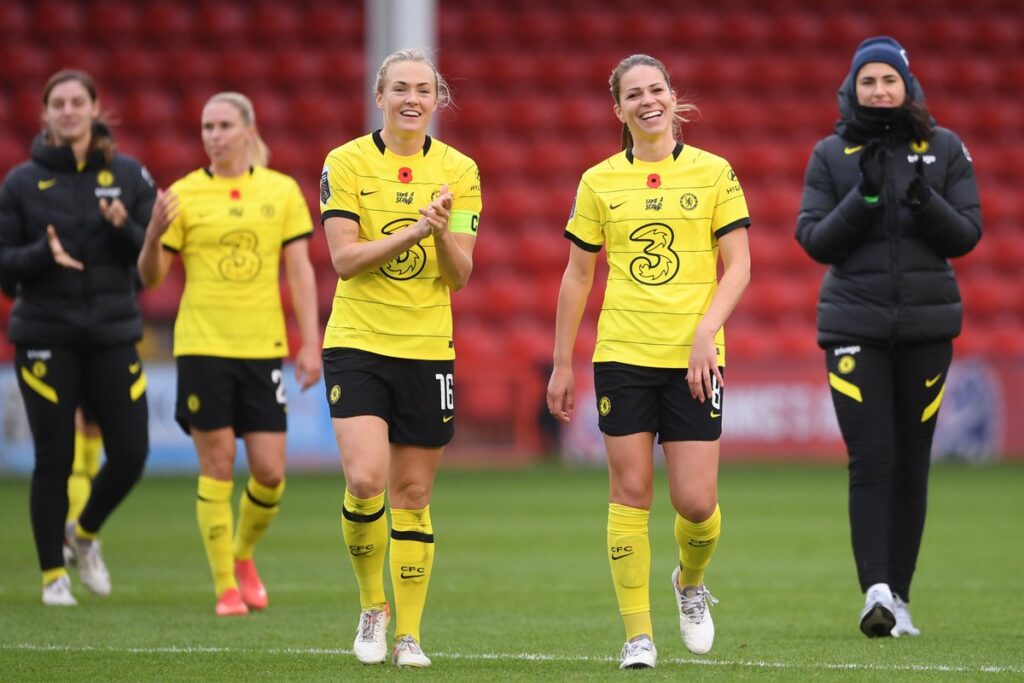
After that, it was back on the coach for the two-and-a-half-hour journey to Surrey. This was not a match that will be remembered for a long time, but the friendships and interaction between some of the world’s best players and their supporters will stay in the memories for much longer.


